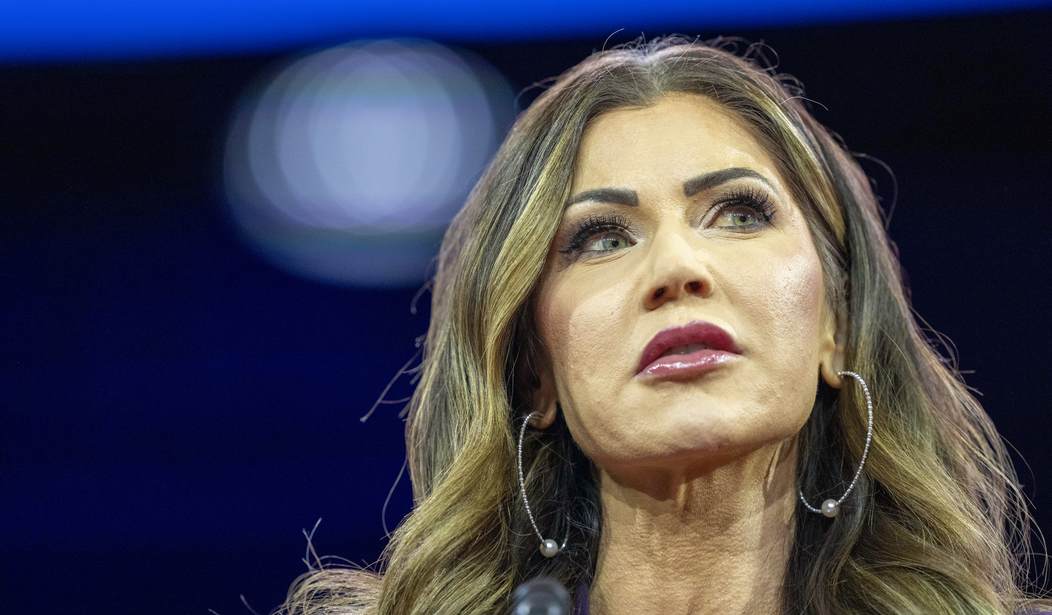South Dakota Gov. Kristi Noem has been banned from all tribal lands in her state after making claims that the leaders are working with the drug cartels, according to several reports.
On Wednesday, Flandreau Santee Sioux Tribe voted to bar her from their reservation. This was the ninth and final tribe in her state to ban her.
“We need to stand in solidarity with our fellow tribes in South Dakota, the Očhéthi Šakówiŋ. We do not want to come up on the wrong side of history in this moment,” Tyler Rambeau, the executive administrative assistant of the FSST Homeowners Assistance Fund, told the Argus Leader.
The tribe’s formal announcement about the decision came after a meeting with Noem, after she said “It was never [her] intent to cause offense by speaking truth to the real challenges that are being faced in some areas of Indian country.”
“I want to focus on solutions that lead to safer communities for all our families, better educational outcomes for all our children and declining addiction numbers for all of our people,” she added. “It is my hope that the Flandreau Santee Sioux Tribe will give us the opportunity to partner together in a way that can be an example for all.”
According to multiple reports, the tension between Noem and the tribal governments began earlier this year when she gave a speech that accused the tribes of helping the Mexican drug cartels.
Recommended
“The cartels are using our reservations to facilitate the spread of drugs throughout the Midwest,” Noem said in remarks in a joint emergency session in January, according to the New York Post.
In March, Noem said, “We’ve got some tribal leaders that I believe are personally benefiting from the cartels being there, and that’s why they attack me every day,” according to The Hill. “But I’m going to fight for the people who actually live in those situations, who call me and text me every day and say, ‘Please, dear governor, please come help us in Pine Ridge. We are scared.’”
This month, Noem reportedly said, “Banishing me does nothing to solve this problem or to help those who are suffering horrific tragedies.”
In an interview with NewsNation, she added, “They’ve [drug cartels] recruited members from the tribes.”
“They are…definitely have set up operations in South Dakota. We’ve seen the Bandidos there, MS-13 is there,” she said.
Last month, a House Committee on Natural Resources Subcommittee on Oversight and Investigations hearing examined how the Biden border crisis has caused violent cartels to “infiltrate and ravage” tribal communities in the United States.
“These Drug Cartels are specifically targeting Indian Country because of a dangerous combination of rural terrain, history of addiction, under-resourced law enforcement, legal loopholes, sparsely populated communities, and exorbitant profits, and it is devastating Tribal reservations. Profits for these cartels soar the farther they get from the southern border. A fentanyl pill that costs less than $1.00 Mexico and southern states, can go for over $100 on our Reservation,” he President Jeffrey Stiffarm of the Assiniboine and Gros Ventre Tribes of the Fort Belknap Indian Community explained. His reservation is located in Montana and has 7,000 members. Its police force is composed of nine officers.

























Join the conversation as a VIP Member